MercoPress. South Atlantic News Agency
Tag: oil industry
-
Wednesday, January 14th 2026 - 01:57 UTC
Falklands’ oil industry expansion, Navitas to farm adjacent Sea Lion development
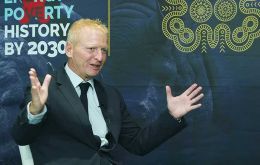
Eco (Atlantic) Oil &Gas Ltd, the Canadian exploration company focused on the offshore Atlantic Margins, announced that Navitas Petroleum LP (“Navitas”), with whom Eco signed a Framework
-
Monday, February 5th 2024 - 10:53 UTC
Falklands oil industry: UK complete support, but no financial backing for islands’ bonds
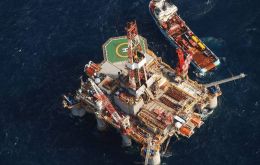
Exploring the viability of the oil industry in the Falkland Islands is building up since its Readiness program in 2014 and has been further boosted by recent agreements among companies interested in developing potential projects, but it recently also faced an unexpected technical hurdle from the UK Treasury Department. Nevertheless, London once again ratified support for the Falkland's right to explore and exploit its natural resources.
-
Wednesday, November 30th 2022 - 09:59 UTC
Deepwater oil and gas production, the fastest growing segment of the industry
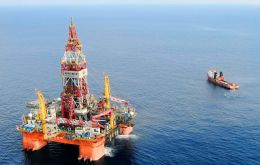
Deepwater hydrocarbon production remains the fastest-growing upstream oil and gas segment with output expected to hit 10.4 million boe/d this year from just 300,000 barrels of oil equivalent per day (boe/d) in 1990.
-
Friday, November 18th 2022 - 09:56 UTC
Venezuela after Guyana's oil claiming border dispute in The Hague
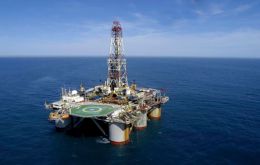
“We will demonstrate Guyana's claim is inadmissible,” Venezuelan Vice President Delcy Rodríguez said on Thursday to the International Court of Justice in The Hague, which is the United Nations' highest for resolving disputes between states.
-
Tuesday, March 15th 2022 - 09:37 UTC
PM Johnson hosted a roundtable of leaders in the UK’s offshore oil and gas industry
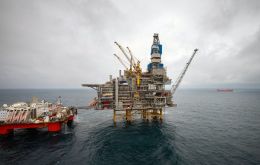
Prime Minister Boris Johnson hosted on Monday a roundtable of leaders in the UK’s offshore oil and gas industry today to discuss domestic energy security. This is part of a series of engagements by the Government across the UK’s energy sectors, including with renewable and nuclear companies in the coming days and weeks.
-
Thursday, December 9th 2021 - 09:49 UTC
Fresh air for Falklands' oil industry: Navitas to become operator with Rockhopper, and Harbour exits
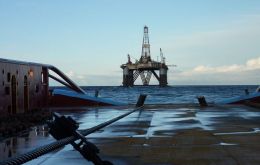
Encouraging news for the Falkland Islands budding hydrocarbons industry. Rockhopper Exploration officially announced on Wednesday that it had reached a new agreement with Navitas Petroleum by which its potential farm-in portion of the Sea Lion project increases significantly, while the current holder of the majority share, Harbour Energy exits the undertaking.
-
Friday, September 24th 2021 - 09:12 UTC
Oil company lifts all South Atlantic operations, future of project in Falklands now reshaped
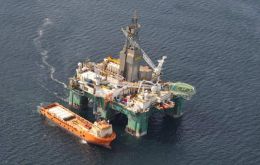
A hydrocarbon development project in the Falkland Islands faces new challenges following the announcement of one of the companies involved that it shall be lifting all South Atlantic operations.
-
Wednesday, September 22nd 2021 - 08:30 UTC
Shell Oil is selling its US Permian assets to ConocoPhillips

By Irina Slav for Oilprice.com – Oil super-major Shell is leaving the Permian with a divestment worth close to US$10 billion. The company said it will sell its assets in the shale play to ConocoPhillips for a total price of US$9.5 billion.
-
Thursday, September 16th 2021 - 09:20 UTC
Beijing releases oil from its strategic reserve to stabilize China's market and guarantee energy security
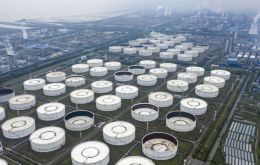
By Irina Slav for Oilprice.com – China made headlines last week with the news that it was going to release some crude oil from its strategic petroleum reserve and sell it in a move Bloomberg called “an unprecedented intervention.”
-
Thursday, September 2nd 2021 - 09:32 UTC
OPEC and Russia keep steady on original plan; ignore US request to pump more oil
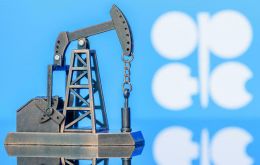
The Organization of Petroleum Exporting Countries plus a group led by Russia, OPEC+1 ignored requests from United States president Joe Biden and agreed on Wednesday to continue raising oil output in measured steps as originally agreed.
